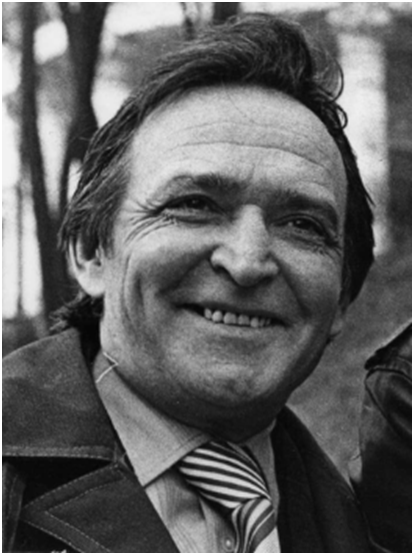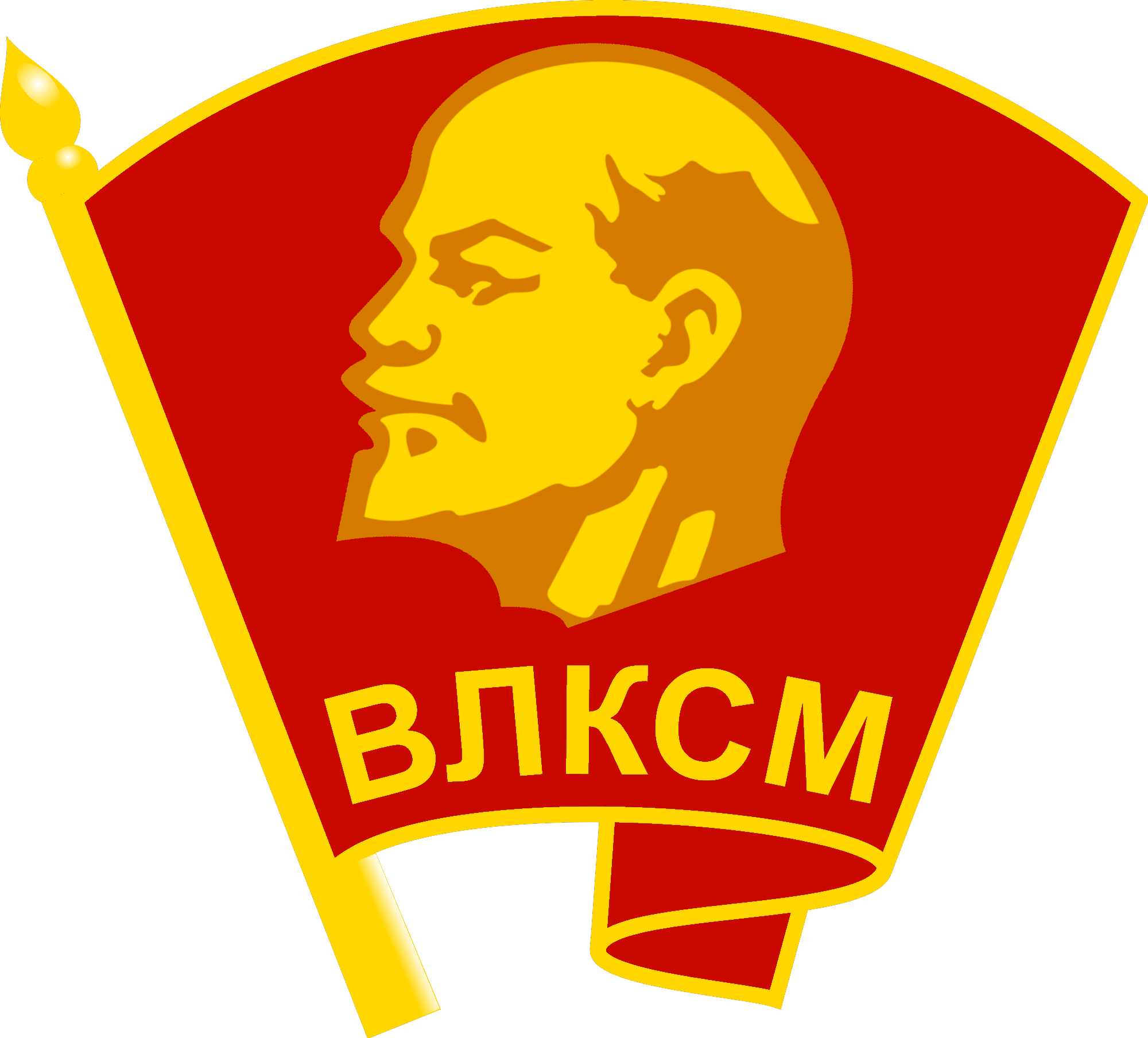|
Pavlo Dvorsky
Pavlo Ananiyovych Dvorsky ( uk, Павло Ананійович Дворський is a Ukrainian singer and composer. He was named People's Artist of Ukraine in 1994. Born in the Bukovyna region, Dvorsky rose to notability after he started singing in the popular Ukrainian ensemble Smerichka in 1976. Initially working as a backing vocalist to Nazariy Yaremchuk, Dvorsky developed himself as a solo performer and a songwriter within the ensemble. He wrote several songs for Yaremchuk and other singers, most notably with the Ukrainian poet Mykola Bakay. Biography Dvorsky graduated from the Chernivtsi music school. In 1976 he was invited to the vocal-instrumental ensemble Smerichka replacing Vasyl Zinkevych and becoming supporting vocal for Nazariy Yaremchuk, while staying in his shadow for sometime. In 1979 there appeared the first songs of Pavlo Dvorsky - 'Volodymyr Kudryavtsev and ''Poppy flowers for the son'' which was commemorated to Volodymyr Ivasyuk. ' became his visit card. Th ... [...More Info...] [...Related Items...] OR: [Wikipedia] [Google] [Baidu] |
People's Artist Of Ukraine
People's Artist of Ukraine is an honorary and the highest title awarding to outstanding performing artists whose merits are exceptional in the sphere of the development of the performing arts (theatre, music, dance, circus, cinema, etc.). Established in 1922 during Soviet times, it was technically called People's Artist of the Ukrainian SSR (Народний артист УРСР). With the establishment of independent Ukraine, this tradition was kept and the title was renamed as People's Artist of Ukraine (Народний артист України). Its recipients include many of the most highly acclaimed composers, dancers, singers, musicians, film and theatre directors, actors, circus performers, etc. During Soviet times, a person was usually named People's Artist only after reaching the age of 40. Exceptions were made for ballet artists. In 2005 the vocalist of the Ukrainian band Vopli Vidplyasova Oleh Skrypka refused to accept the title. There also is another honora ... [...More Info...] [...Related Items...] OR: [Wikipedia] [Google] [Baidu] |
Volodymyr Kudryavtsev
Volodymyr Oleksiyovych Kudryavtsev (Ukrainian: Володимир Олексійович Кудрявцев, 7 October 1934 - 30 April 2014) in the village of Sinelnykove, in the Dnipropetrovsk region) was one of the most popular Ukrainian lyricists of the 1970s and 1980s. Overall, Volodymyr Kudryavtsev authored approximately 700 lyrics and poems, most of which still remain unknown to the public. Throughout his career he teamed up with many famous composers, among them were O. Zuev, I. Shamo, O. Bilash, M. Mozgovy, O. Semenova, E. Martynov, V. Ivasyuk. His major hit “Stozhary” was created in collaboration with composer and singer Pavlo Dvorsky. Other well-known songs included “A My u Dvoh,” “Zapytay u Serdsya,” “Shovkova Kosytsya,” “Povir Ocham,” “Sche ne Vechir.” Volodymyr's songs were performed by Nazariy Yaremchuk, Vasyl Zinkevych, Sofia Rotaru, Liliya Sandulesa, Lina Prohorova, Radmila Karaklajich, Evgen Martynov, Viktor Shportko, Ala Kudlay, Nadiya ... [...More Info...] [...Related Items...] OR: [Wikipedia] [Google] [Baidu] |
People From Chernivtsi Oblast
A person ( : people) is a being that has certain capacities or attributes such as reason, morality, consciousness or self-consciousness, and being a part of a culturally established form of social relations such as kinship, ownership of property, or legal responsibility. The defining features of personhood and, consequently, what makes a person count as a person, differ widely among cultures and contexts. In addition to the question of personhood, of what makes a being count as a person to begin with, there are further questions about personal identity and self: both about what makes any particular person that particular person instead of another, and about what makes a person at one time the same person as they were or will be at another time despite any intervening changes. The plural form "people" is often used to refer to an entire nation or ethnic group (as in "a people"), and this was the original meaning of the word; it subsequently acquired its use as a plural form of ... [...More Info...] [...Related Items...] OR: [Wikipedia] [Google] [Baidu] |
Living People
Related categories * :Year of birth missing (living people) / :Year of birth unknown * :Date of birth missing (living people) / :Date of birth unknown * :Place of birth missing (living people) / :Place of birth unknown * :Year of death missing / :Year of death unknown * :Date of death missing / :Date of death unknown * :Place of death missing / :Place of death unknown * :Missing middle or first names See also * :Dead people * :Template:L, which generates this category or death years, and birth year and sort keys. : {{DEFAULTSORT:Living people 21st-century people People by status ... [...More Info...] [...Related Items...] OR: [Wikipedia] [Google] [Baidu] |
1953 Births
Events January * January 6 – The Asian Socialist Conference opens in Rangoon, Burma. * January 12 – Estonian émigrés found a government-in-exile in Oslo. * January 14 ** Marshal Josip Broz Tito is chosen President of Yugoslavia. ** The CIA-sponsored Robertson Panel first meets to discuss the UFO phenomenon. * January 15 – Georg Dertinger, foreign minister of East Germany, is arrested for spying. * January 19 – 71.1% of all television sets in the United States are tuned into ''I Love Lucy'', to watch Lucy give birth to Little Ricky, which is more people than those who tune into Dwight Eisenhower's inauguration the next day. This record has yet to be broken. * January 20 – Dwight D. Eisenhower is sworn in as the 34th President of the United States. * January 24 ** Mau Mau Uprising: Rebels in Kenya kill the Ruck family (father, mother, and six-year-old son). ** Leader of East Germany Walter Ulbricht announces that agriculture will be col ... [...More Info...] [...Related Items...] OR: [Wikipedia] [Google] [Baidu] |
Volodymyr Prokopyk
Volodymyr ( uk, Володи́мир, Volodýmyr, , orv, Володимѣръ) is a Ukrainian given name of Old East Slavic origin. The related Ancient Slavic, such as Czech, Russian, Serbian, Croatian, etc. form of the name is Володимѣръ ''Volodiměr'', which in other Slavic languages became Vladimir (from cu, Владимѣръ, Vladiměr). Diminutives include Volodyk, Volodia, Lodgo and Vlodko People known as Volodymyr * Volodymyr the Great (aka St. Volodymyr, Volodymyr I of Kyiv), Grand Prince of Kyiv * Volodymyr II Monomakh, Grand Prince of Kyiv * Volodymyr Atamanyuk (born 1955), Soviet footballer * Volodymyr Bahaziy (1902–1942), Ukrainian nationalist * Volodymyr Barilko (born 1994), Ukrainian football striker * Volodymyr Bezsonov (born 1958), Ukrainian football manager and player * Volodymyr Chesnakov (born 1988), Ukrainian footballer * Volodymyr Demchenko (born 1981), Ukrainian sprinter who competed in the 2004 Summer Olympics * Volodymyr Dyudya (born 1983 ... [...More Info...] [...Related Items...] OR: [Wikipedia] [Google] [Baidu] |
Chernivtsi
Chernivtsi ( uk, Чернівці́}, ; ro, Cernăuți, ; see also other names) is a city in the historical region of Bukovina, which is now divided along the borders of Romania and Ukraine, including this city, which is situated on the upper course of the Prut river in the Southwestern Ukrainian territory. Chernivtsi serves as the administrative center for the Chernivtsi raion, the Chernivtsi urban hromada, and the oblast itself. In 2021, the Chernivtsi population, by estimate, is and the latest census in 2001 was 240,600. The first document that refers to this city dates back to 1408, when Chernivtsi was a town in the region of Moldavia, formerly as a defensive fortification, and became the center of Bukovina in 1488. In 1538, Chernivtsi was under the control of the Ottoman Empire, and the Turkish control lasted for two centuries until 1774, when Austria took control of Bukovina in the aftermath of the Russo-Turkish War. Chernivtsi (known at that time as ) became th ... [...More Info...] [...Related Items...] OR: [Wikipedia] [Google] [Baidu] |
Chervona Ruta (festival)
Chervona Ruta ( uk, Червона рута) is a permanent biennial all-Ukrainian youth festival of contemporary song and popular music,Serhiy Kharynovych. The first republican. What was the 1989 festival "Chervona Ruta" (Перший республіканський. Чим був фестиваль «Червона рута» 1989 року?)' The Ukrainian Week. 2 January 2017 which has been held every two years since 1989. It was a benchmark where more Ukrainian popular music was presented transitioning away from traditional Ukrainian folk culture associated with "sharovary" genre. Unlike the Soviet festival Song of the Year (Pesnya goda) where only a selected song from Ukraine sometimes was demonstrated, Chervona Ruta allowed more singers and songs. The festival is dedicated to a Ukrainian songwriter, composer and poet Volodymyr Ivasyuk who is the author and composer of the widely popular Ukrainian song '' Chervona Ruta''. The name may refer to a mythological or actual species ... [...More Info...] [...Related Items...] OR: [Wikipedia] [Google] [Baidu] |
Komsomol
The All-Union Leninist Young Communist League (russian: link=no, Всесоюзный ленинский коммунистический союз молодёжи (ВЛКСМ), ), usually known as Komsomol (; russian: Комсомол, links=no ()), a syllabic abbreviation of the Russian ), was a political youth organization in the Soviet Union. It is sometimes described as the youth division of the Communist Party of the Soviet Union (CPSU), although it was officially independent and referred to as "the helper and the reserve of the CPSU". The Komsomol in its earliest form was established in urban areas in 1918. During the early years, it was a Russian organization, known as the Russian Young Communist League, or RKSM. During 1922, with the unification of the USSR, it was reformed into an all-union agency, the youth division of the All-Union Communist Party. It was the final stage of three youth organizations with members up to age 28, graduated at 14 from the Young Pioneer ... [...More Info...] [...Related Items...] OR: [Wikipedia] [Google] [Baidu] |
Bulgaria
Bulgaria (; bg, България, Bǎlgariya), officially the Republic of Bulgaria,, ) is a country in Southeast Europe. It is situated on the eastern flank of the Balkans, and is bordered by Romania to the north, Serbia and North Macedonia to the west, Greece and Turkey to the south, and the Black Sea to the east. Bulgaria covers a territory of , and is the sixteenth-largest country in Europe. Sofia is the nation's capital and largest city; other major cities are Plovdiv, Varna and Burgas. One of the earliest societies in the lands of modern-day Bulgaria was the Neolithic Karanovo culture, which dates back to 6,500 BC. In the 6th to 3rd century BC the region was a battleground for ancient Thracians, Persians, Celts and Macedonians; stability came when the Roman Empire conquered the region in AD 45. After the Roman state splintered, tribal invasions in the region resumed. Around the 6th century, these territories were settled by the early Slavs. The Bulgars, led by Asp ... [...More Info...] [...Related Items...] OR: [Wikipedia] [Google] [Baidu] |
Volodymyr Ivasyuk
Volodymyr Mykhailovych Ivasyuk or Volodymyr Ivasiuk ( uk, Володи́мир Миха́йлович Івасю́к) (4 March 1949 – 24–27 April 1979) was a Ukrainian songwriter, composer and poet. He is the author and composer of the widely popular song " Chervona Ruta" popularized by Sofia Rotaru in 1971, and later covered by other singers. Biography Ivasyuk was born in Kitsman, Chernivtsi Oblast. His father Mykhaylo Ivasyuk was a well-known writer from Bukovyna. His mother Sofiya Ivasyuk, from Zaporizhzhia Oblast, was a teacher in a local school. He had two sisters, Halyna (b. 1944) and Oksana (b. 1960). As early as the age of five, Volodymyr began learning to play the violin at a music school. Later, he learnt to play the piano as well. In 1964 he created an ensemble - "Bukovyna" - in his school and wrote their first songs, the first of which was "Lullaby". After Volodymyr had already graduated from secondary school, his family moved to the city of Chernivtsi where ... [...More Info...] [...Related Items...] OR: [Wikipedia] [Google] [Baidu] |


_1938.jpg)



